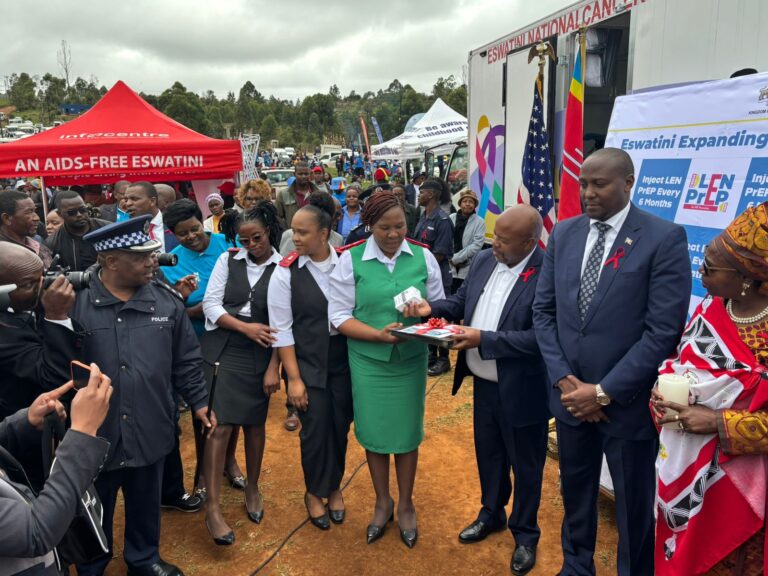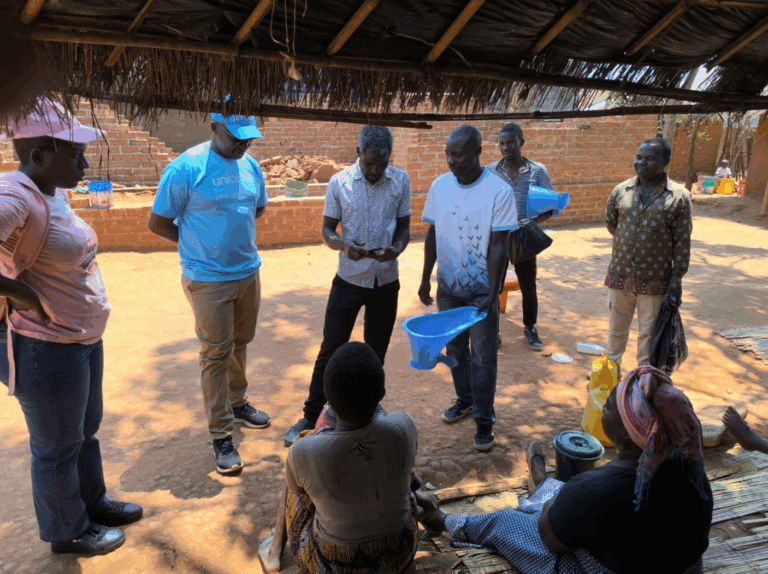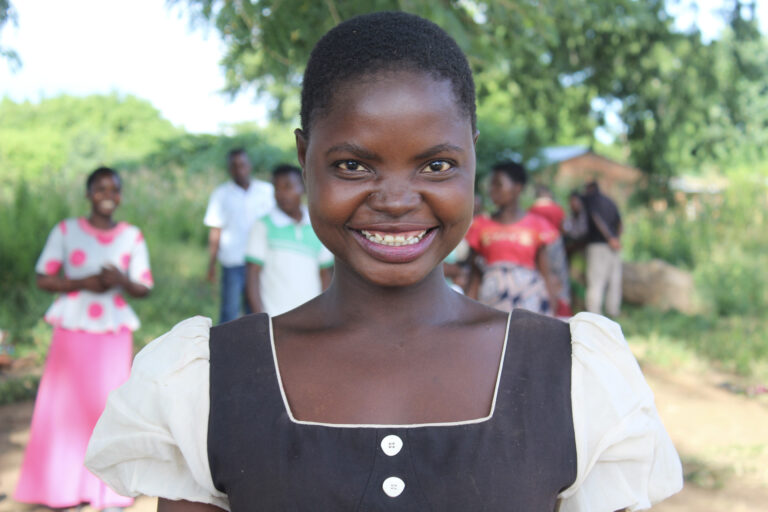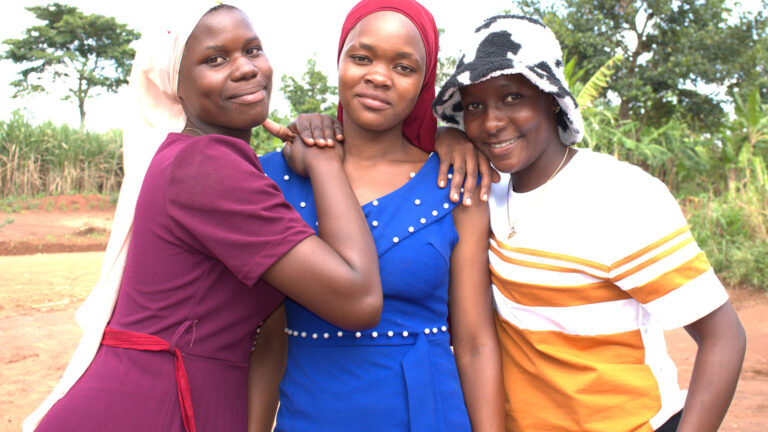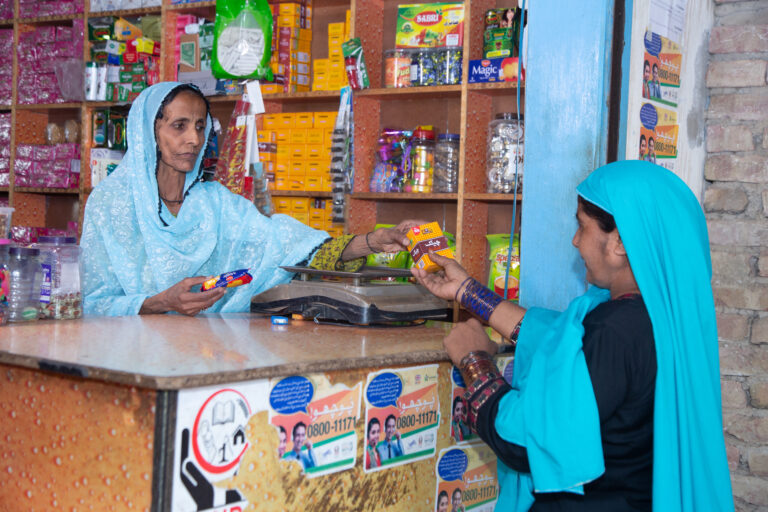This piece originally ran on impactmalaria.org
PMI Impact Malaria is the flagship global service delivery project of the U.S. President’s Malaria Initiative (PMI), providing global technical leadership to fight malaria and save lives. PMI Impact Malaria supports endemic countries in their efforts to strengthen malaria diagnosis, treatment, and drug-based prevention in health facility and community settings through implementation and technical support, as well as operational research.
For high malaria transmission settings, one intervention that has received renewed interest by the global malaria community is mass drug administration (MDA). MDA for malaria consists of administering a full treatment course of antimalarials at approximately the same time, to all age groups of a population in a defined geographical area. In June 2022, the World Health Organization expanded their MDA recommendations for the following use-case scenarios: (1) burden reduction of Plasmodium falciparum in moderate to high transmission settings and emergency settings and (2) reduction of Plasmodium falciparum transmission in areas of low to very low endemicity. However, until now none of the studies supporting these recommendations have been conducted in Senegal or in areas where SMC is currently being implemented.
Since 2020, PMI Impact Malaria has been collaborating with the University Iba Der Thiam of Thiès in Senegal to support the Senegalese National Malaria Control Program (NMCP) to test the effectiveness, safety, acceptability, and feasibility of implementing MDA in an area of moderate-to-low malaria transmission in southeastern Senegal, comprised of 60 villages. The study completed implementation of the intervention in 2021, and the team continued to work on analyzing the data collected before and during the implementation year (2020-2021) to determine whether effects on malaria incidence were sustained. These interventions were compared against a background of strong vector control, passive case detection in health facilities, and community case management.
Analyses of the safety, effectiveness, and coverage of MDA has been developed into abstracts that were presented at American Society for Tropical and Medical Hygiene conference in 2022 (acceptability, operational lessons learned, and short-term impact) and 2023, and will be published in a forthcoming peer-reviewed manuscript, and through dissemination meetings with Senegal country partners. For Senegal and other countries, the anticipated impact of the study, due to the preliminary findings, is that MDA will be shown to be an effective intervention for areas with ongoing malaria control activities in transitioning to elimination zones.

To learn more about the impact of the study and the partnership between PMI Impact Malaria and the University Iba Der Thiam of Thiès, we spoke with Jean Louis Adbourahim Ndiaye, MD, Ph.D, Professor of Parasitology and Research Lead for the Department of Medical Parasitology at the university and who led the university’s engagement on the MDA study (photographed left) (interview edited for clarity):
Q: What high-level findings or overarching lessons have you observed since the beginning of the MDA activity in target areas of Senegal supported by the University Iba Der Thiam of Thiès and PMI Impact Malaria?
A: MDA was very well appreciated by the stakeholders who supported it throughout the process through preparation, implementation, and dissemination of results. Well before the analysis of morbidity data, the populations who lived in MDA villages were already giving us this positive feedback about appreciating their experience regarding malaria season in 2021 compared to previous years. The commitment of the health authorities, led by the district and regional chief doctors, enabled optimal implementation of the project and nearly continuous mobilization of all stakeholders.
The expected results in terms of coverage, adherence, and acceptability were very positive for MDA (more than 80%) with a reduction in incidence of more than 53% since the beginning of the activity supported by University Iba Der Thiam de Thies and PMI Impact Malaria.
Q: How have lessons from the MDA activity been applied to or changed how the team supports Senegal’s NMCP and Ministry of Health to sustain impact and move closer to elimination?
A: The Senegalese National Malaria Control Program (NMCP) is already planning to implement MDA in 3 health districts in Senegal between 2024 and 2025. This is largely due to this MDA study perceptions and success factors which served as a pilot phase. All lessons learned will be capitalized during this deployment phase and University Iba Der Thiam de Thies is ready and available to support the NMCP in its implementation and evaluation once scaled up.
Q: Please share your experience working with PMI Impact Malaria and partners to support the NMCP and Ministry of Health to establish MDA activity. What gap was identified that created the need for this study?
A: This operational research was intended to fill a critical evidence gap for the role of MDA in areas of low to moderate transmission. The Senegalese NMCP has adopted a target to reach the pre-elimination threshold (defined by the World Health Organization as an annual incidence of < 5 cases per 1,000 population) by 2030, by implementing an adapted set of interventions for different transmission zones according to incidence. In Senegal, seasonal malaria chemoprevention (SMC) is currently being administered to children aged 3 months to 10 years in four southeastern and 2 central regions. In addition to standard interventions, pre-elimination areas, mainly in the north, are eligible for case investigation and response measures, while higher transmission areas, mainly in the south (areas of control, rather than elimination), benefit from SMC and are given priority for active home management of fever by community health workers (CHWs) who make weekly visits during the months of high transmission (May to October). Despite the scaling up of all of these control interventions, many areas will require an accelerated response to allow the NMCP to move more quickly to an elimination phase and to push the elimination margins farther in a much more aggressive manner.
Q: What have you learned from the MDA activity that is most important for Senegal and other national governments when considering which interventions to prioritize in their strategic approach towards malaria, especially countries like Senegal that are aiming to shift from control to elimination activities?
A: Good communication is more than necessary to succeed. Information channels accessible to local populations (home visits, caravans, community meetings) must be used while minimizing the impact of social networks on the dissemination of misinformation and disinformation. It is also necessary to understand the local context and plan the implementation by considering the social events likely to take place in the targeted localities while involving health, administrative, and local authorities. This requires a clear explanation of the MDA objectives to stakeholders but also the need for collaboration among all stakeholders to obtain the expected results. Given that this is an activity led by health authorities, the leadership of the district medical officer is very decisive and essential to the success of such a strategy.
Q: What is the benefit of the collaborative approach between the Universite Iba Der Thiam de Thies, PMI Impact Malaria, and national leadership?
A: This collaborative approach leverages the expertise of each partner depending on their specificity. Universities will bring their knowledge in the research and development side and PMI and the NMCP in the implementation side. The main outcome will be the rapid translation of research findings into action facilitated by a more holistic understanding of the MDA intervention and results by the National leadership.
This can lead to a greater impact on public health outcomes. The NMCP will ensure our research is aligned with their priorities. They can also facilitate long-term planning and funding commitments from PMI and its partners, which are crucial for the sustainability of public health programs.
Furthermore, this collaborative efforts between the strong PMI Impact Malaria research team on malaria elimination and local research teams from the University Iba Der Thiam of Thiès involve knowledge exchange and builds local capacity for sustainable health interventions.
Q: What inspires you about continuing this work to end malaria in Senegal and other malaria-endemic countries?
A: The problem of population mobility must also be addressed at the local and sub-regional level and this should open the door to cross-border collaboration, involving states and their national malaria programs for harmonization of procedures and optimization of resources which would allow the fight against malaria to be much more efficient. This involves determining the optimal timing (depending on the localities) for its administration but also the right number of cycles to reach a level of coverage allowing pre-elimination to be achieved in certain localities such as Kédougou, Kolda, and Tambacounda.
Overall, the MDA project allows us to have good hopes about the possibility of eliminating malaria in Senegal.
Additional Lessons Learned:
- Strong community involvement prior to implementing interventions and coordination with health authorities have been helpful in proactively identifying relevant educational messages to use and helping the team to avoid rumors and misconceptions that could negatively impact participation in the study. This community and health authority engagement was especially critical in the context of mitigating the spread of COVID-19 misinformation related to project activities.
- Although MDA is generally well appreciated and accepted by communities, several refusals were found which were more common among males (72%) of adolescent or young adult age. Interviews among those who refused showed that the likely causes of refusals were due to rumors spread about MDA campaigns through social media campaigns and by community members who suggested that MDA drugs may reduce women’s fertility and men’s virility. Furthermore, several individuals also reported refusing due to fear of adverse events, conflicts between village chiefs, and a lack of understanding of the randomization process of villages. Therefore, beyond the health dimension, MDA coverage could be improved by considering the socio-cultural and political structures into the community sensitization and engagement practices and addressing the possible misinformation that is spread about the MDA campaign.
- Frequent population movement and long-term absences hampered MDA coverage during drug distribution months. In the future, teams should consider building in time during the preparation phase to account for study population movement when drug distribution is planned. Doing so will help to quantify and reach all eligible persons in the population and understand reasons for absences.
PMI Impact Malaria is funded and technically assisted by the U.S. President’s Malaria Initiative (PMI) and is led by Population Services International (PSI) in partnership with Jhpiego, MCD Global Health, and the Malaria Elimination Institute (MEI) at the University of California San Francisco.

